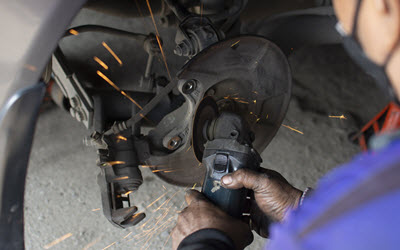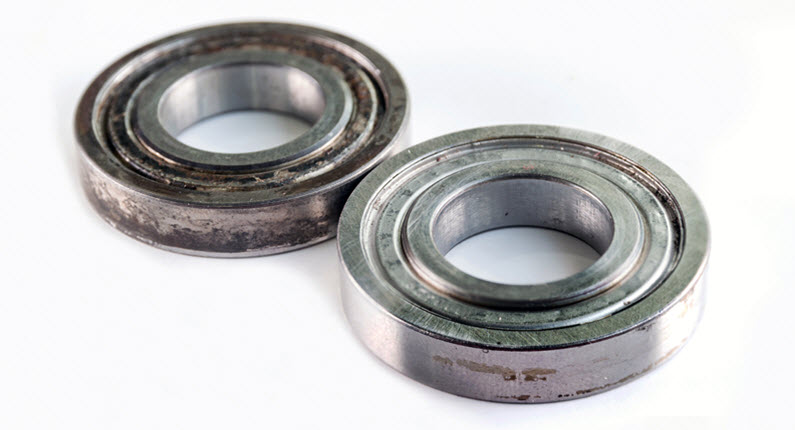Volvos are popular for a variety of reasons. They are fuel efficient, easy to maneuver, and fun to drive. For many people, they are also a status symbol. In recent years, the popularity of Volvos has only grown. In part, this is due to the rise of car-sharing programs like Zipcar, which make it easy for people to rent cars by the hour or day. But it is also because Volvos are now available in a wide range of styles and colors, making them even more appealing to potential buyers. Whatever the reason, there is no doubt that Volvos have become one of the most popular types of vehicles on the road today.
Volvo are popular cars known for their reliability. However, they can still experience wheel bearing failure. The wheel bearings are what allow the wheels to rotate smoothly. When they fail, the wheels can start to make noise or vibrate. This can be dangerous as it can make it difficult to control the car. If you suspect that your wheel bearings are failing, it’s important to take your car to a trained mechanic as soon as possible so that the problem can be fixed. driving on damaged wheel bearings can cause further damage to your car and may even lead to an accident.
What is a wheel bearing?
A wheel bearing is a set of metal balls held together by a metal ring called a race. They help wheels spin fast with as little friction as possible. Most cars have four bearings – two at the front and two at the back. The front bearings take more weight and wear out faster than the rear ones. You’ll usually find bearings inside the hub, which is the large round wheel-like part that the tire mounts onto. The hub attaches to the axle, which is connected to your car’s suspension. The suspension is what keeps your car from bouncing up and down too much as you drive over bumps in the road.
Early wheel bearings were made entirely of wrought iron. Today, they are made mostly of steel with a small amount of copper (to improve durability) and sometimes plastic (to reduce noise and vibration). No matter what they are made of, though, all wheel bearings have to be kept well-lubricated to work properly and last a long time. Without lubrication, friction rises and components overheat, leading to damage and eventually failure.
Signs of Wheel Bearing Failure
One of the most common signs of wheel bearing failure in a car is a loud noise coming from the wheels. This noise is usually caused by metal-on-metal contact, and it can be quite noticeable when driving at high speeds. Another sign of wheel bearing failure is a vibration that can be felt in the steering wheel or in the seat. This vibration is usually caused by an uneven surface on the bearings, and it can be quite jarring. If you notice either of these signs, it’s important to have your car checked out by a mechanic as soon as possible. Wheel bearing failure can lead to serious problems, including loss of control of the car.
The most common cause of failure is lack of lubrication, which can lead to excessive wear and tear. To prevent this from happening, it is important to regularly check the level of lubricant in the bearings and to add more if necessary. In addition, it is important to keep the bearings clean and free from debris. If you notice any changes in the way your vehicle is handling, or if you hear strange noises coming from the wheels, be sure to have the bearings checked by a qualified mechanic. By following these simple tips, you can help to prevent wheel bearing failure and keep your car running smoothly.
World Class Auto: Boca Raton’s Volvo Experts
At World Class Auto in Boca Raton, FL, we  specialize in Volvo repairs. If you suspect that your front wheel bearings are failing, bring your car to us and we’ll take a look. We’ll check for any damage to the bearings themselves, as well as any damage to the brake rotors or other parts of the suspension. If we find that the bearings are indeed failing, we’ll replace them with new ones. We only use high-quality replacement parts, so you can be sure that your car will be running like new again in no time. Call us today to schedule an appointment.
specialize in Volvo repairs. If you suspect that your front wheel bearings are failing, bring your car to us and we’ll take a look. We’ll check for any damage to the bearings themselves, as well as any damage to the brake rotors or other parts of the suspension. If we find that the bearings are indeed failing, we’ll replace them with new ones. We only use high-quality replacement parts, so you can be sure that your car will be running like new again in no time. Call us today to schedule an appointment.
 9787 Glades Rd Boca Raton, FL 33434
9787 Glades Rd Boca Raton, FL 33434 (561) 451-0502
(561) 451-0502
